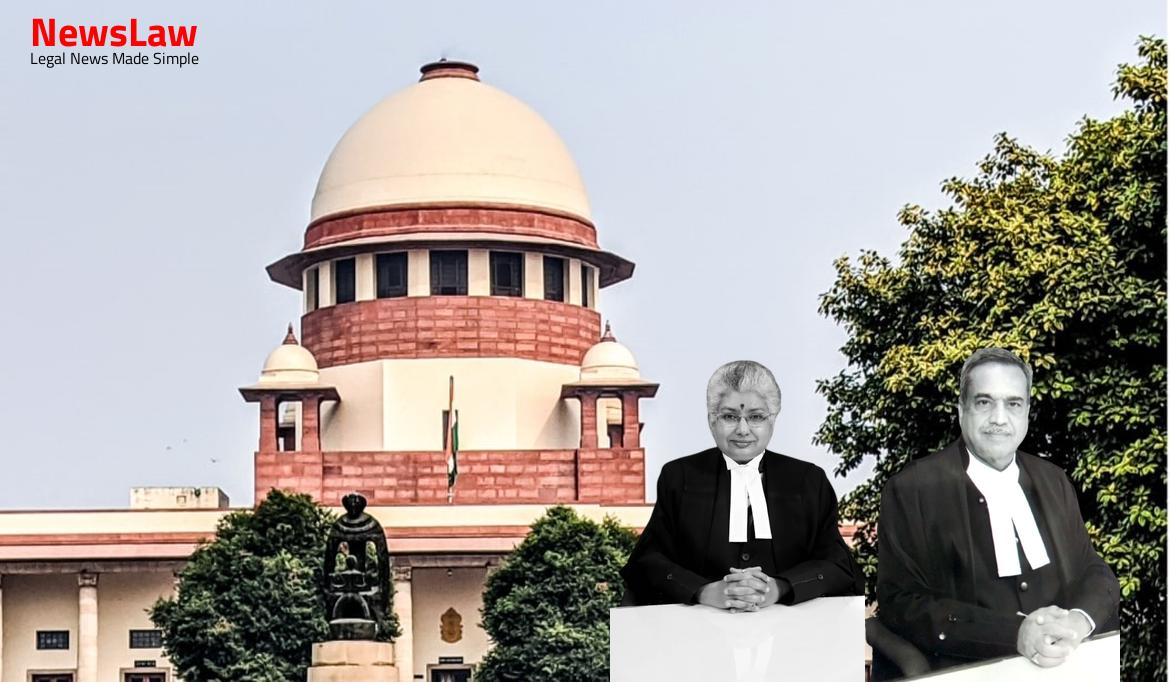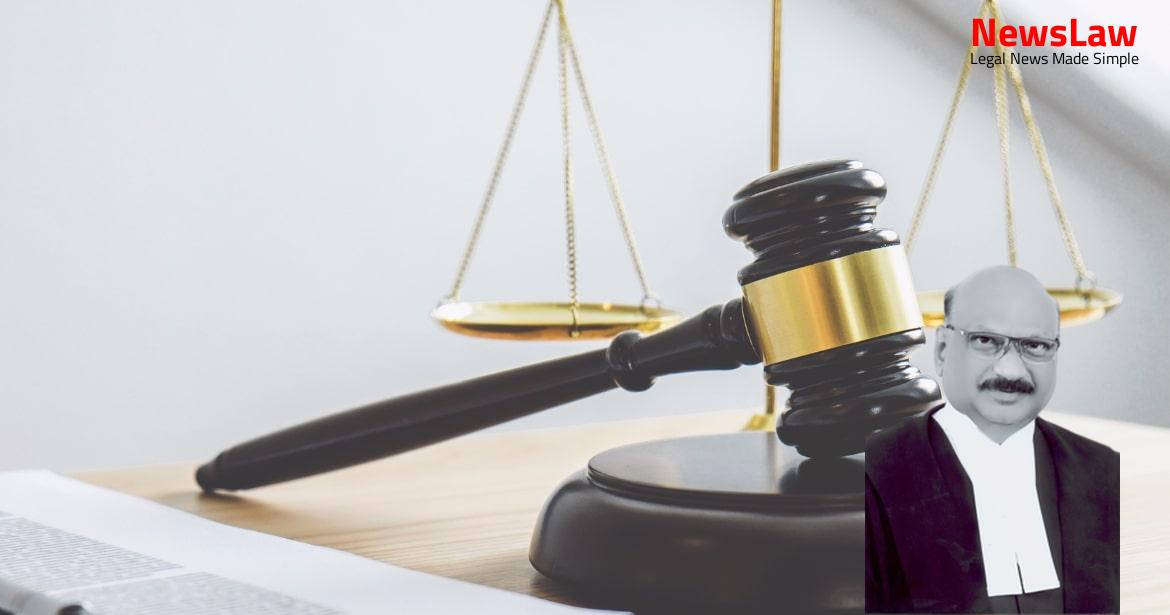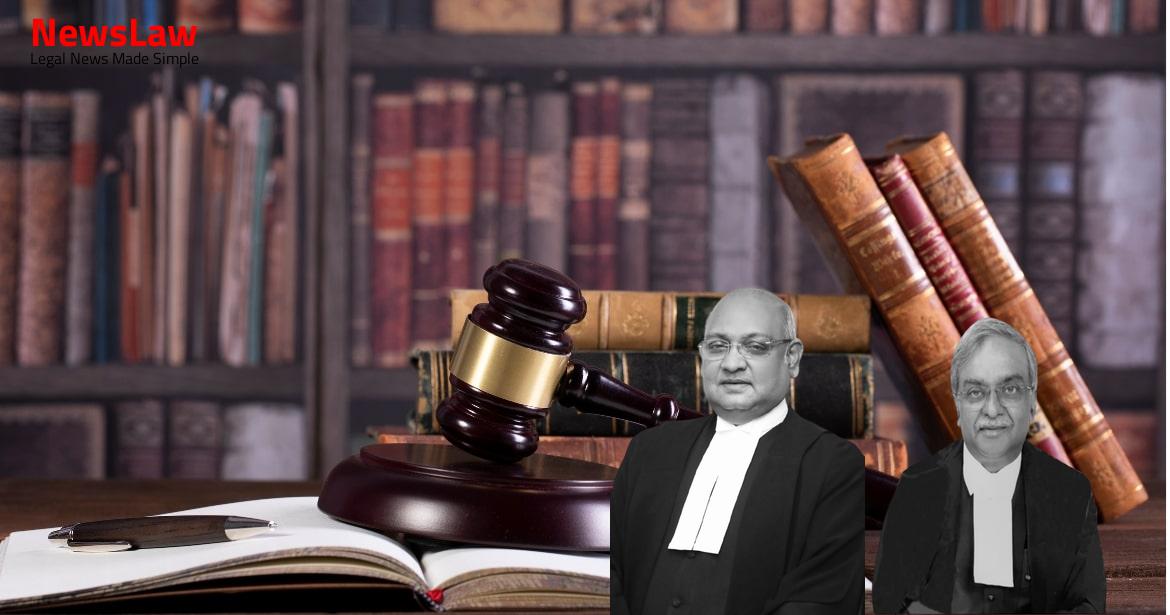A father’s appeal against the High Court’s bail grant to the accused in a case involving serious offenses has sparked a debate on the court’s legal analysis. The court’s decision to release the accused on bail despite the gravity of the charges raises questions about the application of legal principles. The focus is on examining the court’s reasoning and interpretation of the law in such cases.
Facts
- Feeling aggrieved and dissatisfied with the impugned judgment(s) and order(s) dated 06.10.2020 passed by the High Court of Judicature at Allahabad in Criminal Misc. Bail Application Nos. 6294 of 2020 and 7992 of 2020 by which the High Court has released respective respondents No.2 herein on bail in connection with Case Crime No.203 of 2019 for the offences punishable under Sections 147, 148, 149, 323, 504, 506, 302, 307 and 34 of the IPC, P.S. Barhaj, District Deoria, the original informant/complainant – father of the deceased has preferred the present appeals.
- That the appellant herein lodged an FIR against respective respondents No.2 and others for the offences punishable under Sections 147, 148, 149, 323, 504, 506, 302, 307 and 34 of the IPC for murder of his son.
- Respective respondents No.2 – accused applied to release them on bail before the learned Sessions Courts/Additional Sessions Judge, Deoria.
- Accused persons named in the FIR for allegedly attacking and killing the deceased.
- Allegations of common intention to attack the deceased with various weapons.
- Witness statements under Section 161 Cr.PC supporting the incident.
- Respondents No.2 filed bail applications under Section 439 Cr.PC.
- Sessions Courts rejected the bail applications on 19.11.2019 and 22.01.2020 after reviewing case diary and documents.
Also Read: Ruling on Circumstantial Evidence in Murder Case
Arguments
- The High Court has not considered the offence under Section 149 of the IPC where all accused acted with common intention to attack and kill the deceased, making individual roles insignificant.
- In serious offences like Sections 302, 147, 148, 149 of the IPC, the accused should not have been released on bail by the High Court.
- The High Court released the respondents No.2 on bail based on wrong facts, as demonstrated.
- The appellant’s counsel argued that the High Court’s decision to release the accused on bail was a grave error, done mechanically without proper consideration or application of mind.
- Statements of relevant witnesses under Section 161 Cr.PC were recorded on the day of the incident, contrary to the High Court’s claim of a delay of over 20 days.
- The High Court noted that the accused were not named in the FIR, but the petitioner contends that the respective respondents were named from the beginning.
- Even the Sessions Courts, while rejecting bail applications, specifically noted that the accused were named in the FIR.
- The High Court’s decision lacked detailed reasoning and only made general observations about the nature of the offence and opinions of the counsels, without delving into the merits of the case.
- The accused never claimed they were not named in the FIR
- The accused never claimed that witness statements were recorded at a later stage
- The present appeals are opposed by Shri Krishna M. Singh, representing the accused
Also Read: Challenging Legal Presumptions in Negotiable Instrument Cases
Analysis
- The High Court released the respective respondents No.2 on bail despite being charged for serious offenses including the murder of the complainant’s son.
- The post mortem report indicated multiple injuries on the deceased’s body, including a fracture in the occipital region of the head and hematoma in the brain.
- The High Court’s decision to release the accused on bail in such grave offenses was deemed unsustainable.
- The High Court did not consider the gravity and nature of the offenses while granting bail.
- The High Court accepted incorrect submissions from the accused regarding their involvement in the FIR and witness statements.
- The bail was granted mechanically and without considering the correct facts and circumstances of the case.
- While granting bail, relevant considerations include seriousness of the offence, character of evidence, circumstances peculiar to the accused, likelihood of the accused fleeing, impact on prosecution witnesses and society, and likelihood of tampering.
- High Court did not consider relevant facts and considerations while granting bail.
- Bail was granted mechanically and based on incorrect facts not even raised by the accused.
- Applicant’s counsel’s submissions were appealing for the purpose of bail.
- Nature of offence, evidence, and complicity of the accused supported bail grant, without expressing opinion on merits of the case.
- High Court’s bail orders were unsustainable on both fact and law basis.
Also Read: Legal Analysis Critique in High Court’s Quashing Order
Decision
- The observations made in the present order are only for the purpose of deciding bail
- The trial court should proceed with the trial and decide based on evidence from both sides
- The present appeals are allowed and the surrender is required forthwith
- The impugned judgments releasing the respective respondents on bail are quashed and set aside
Case Title: MANNO LAL JAISWAL Vs. THE STATE OF UTTAR PRADESH (2022 INSC 97)
Case Number: Crl.A. No.-000097-000097 / 2022



